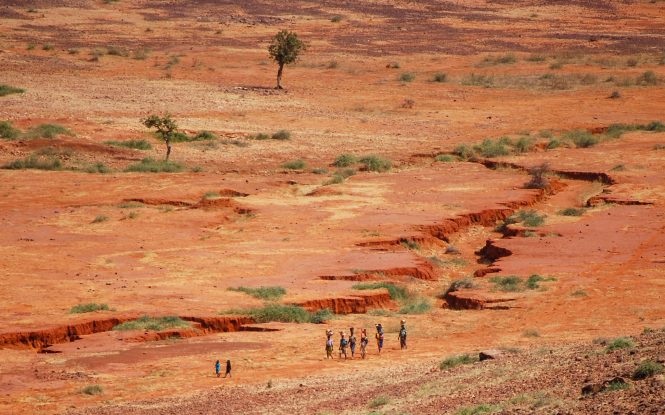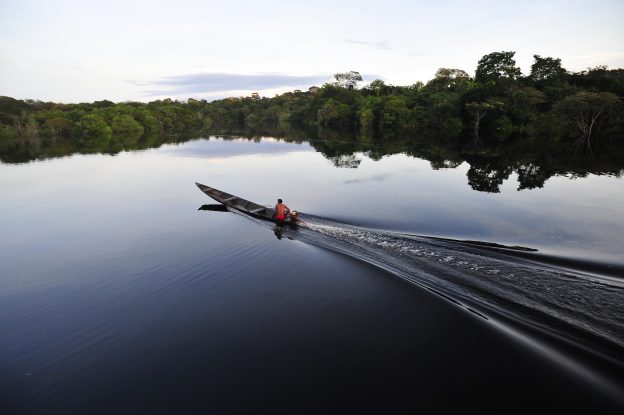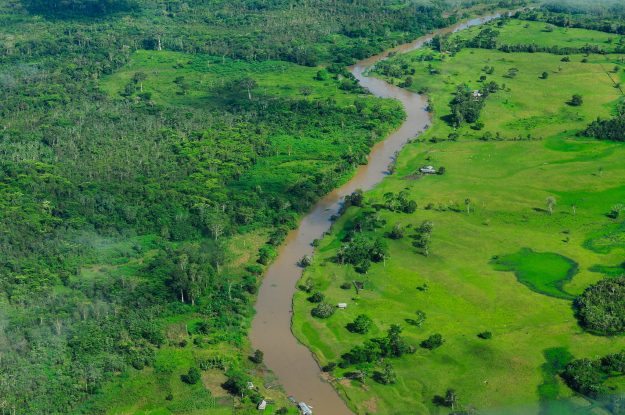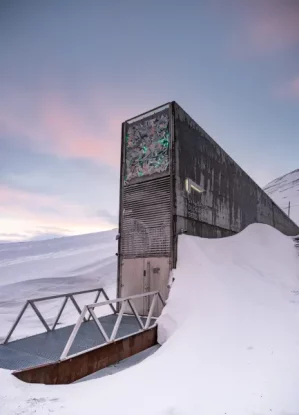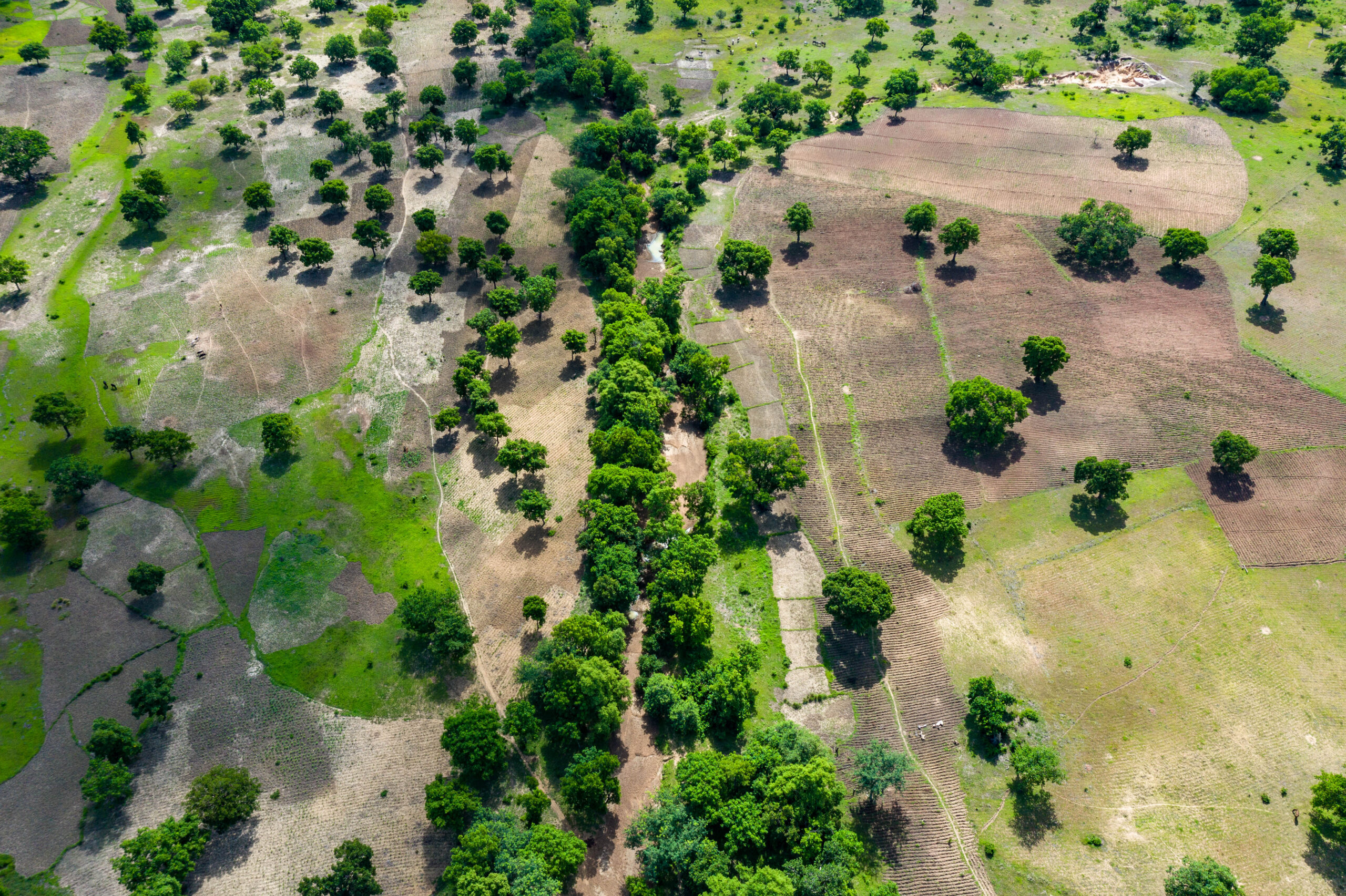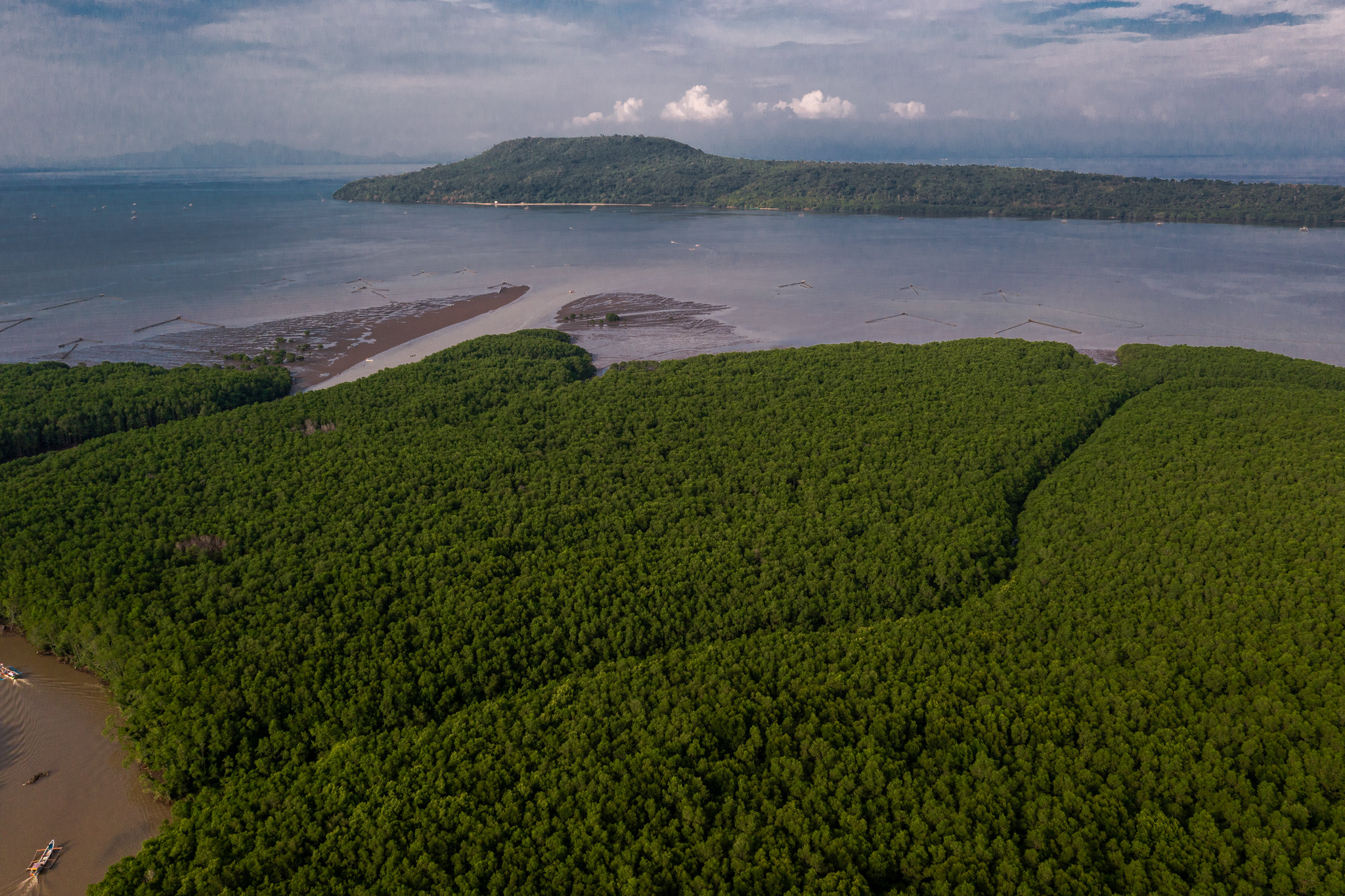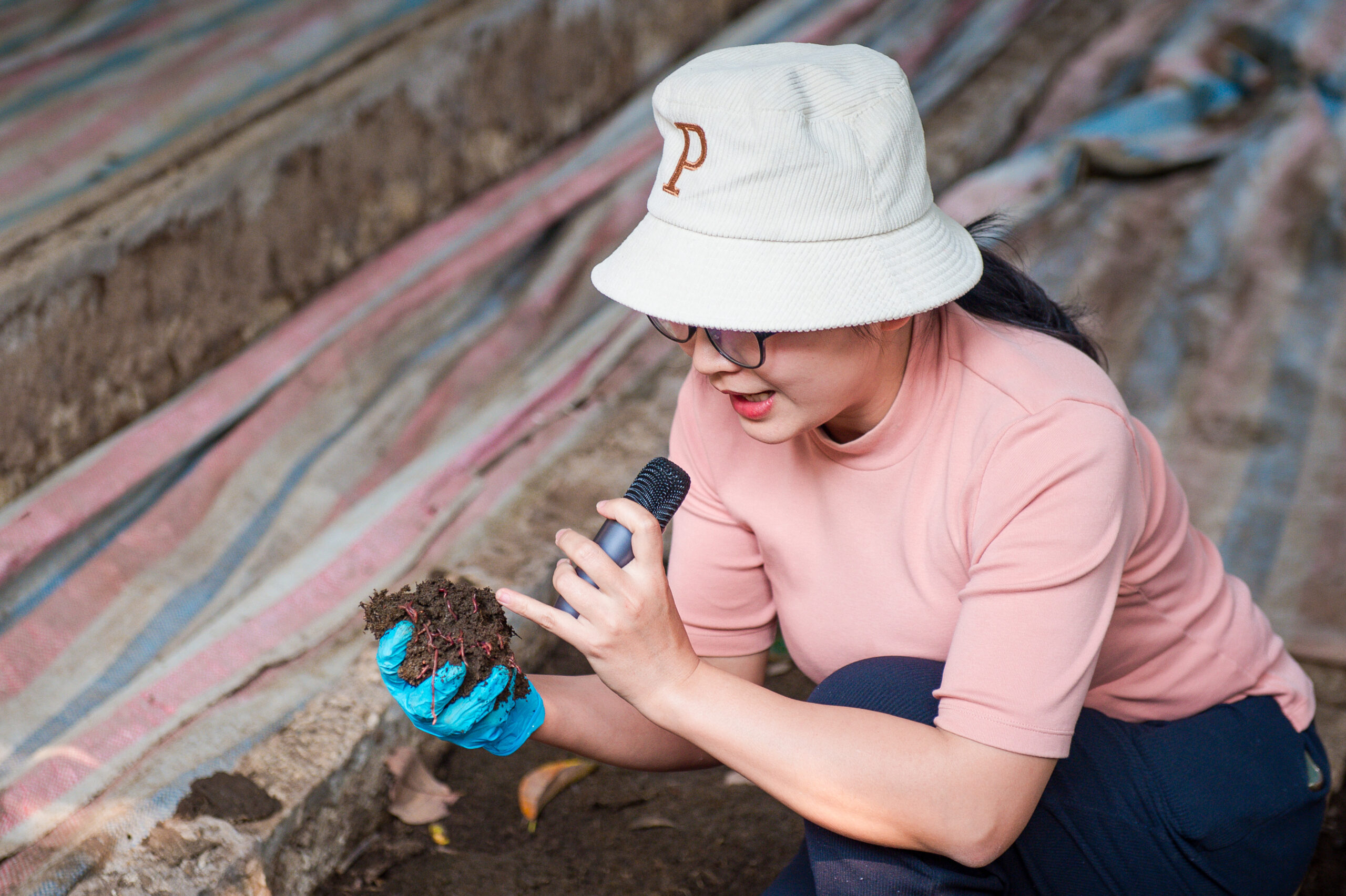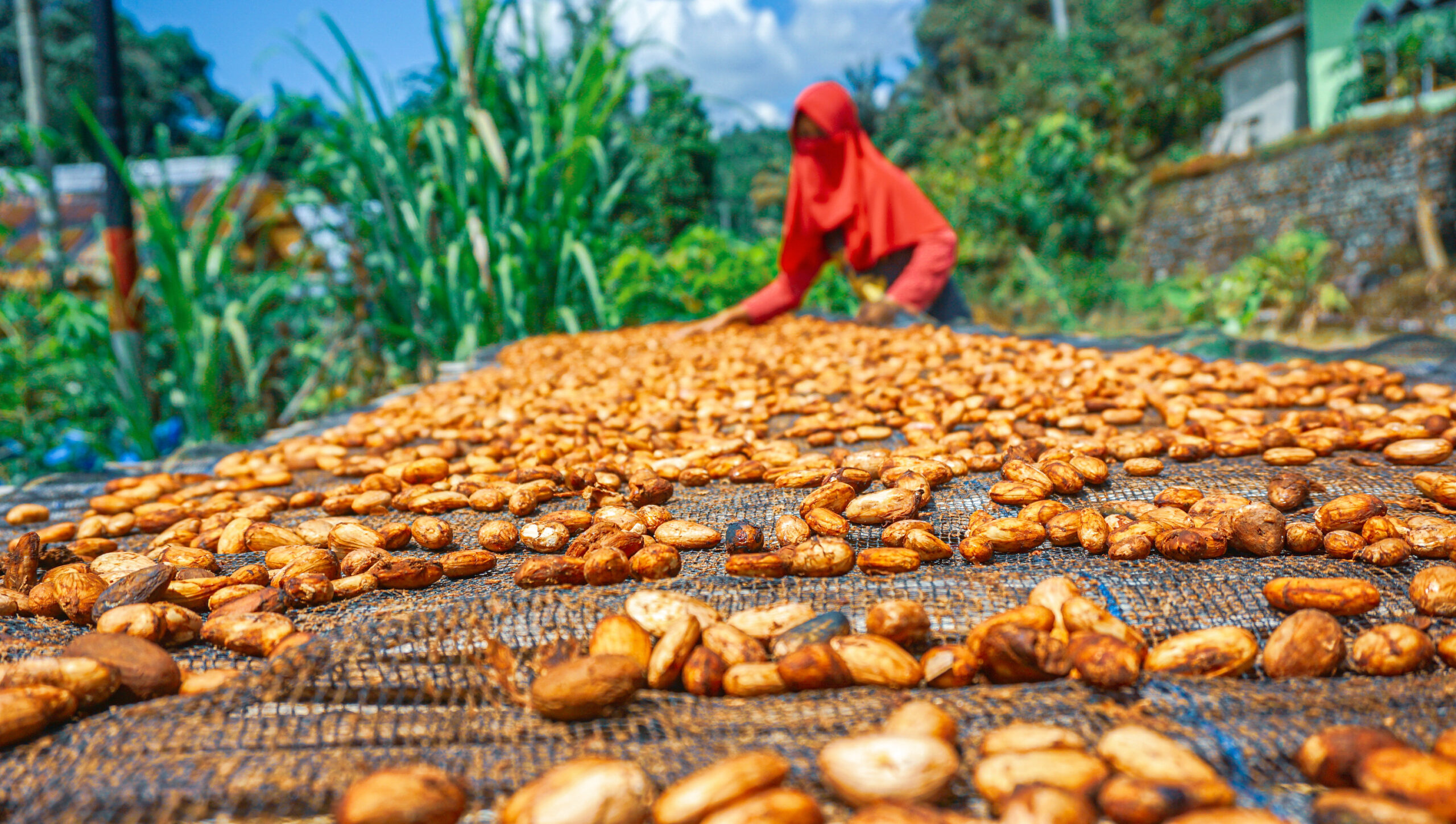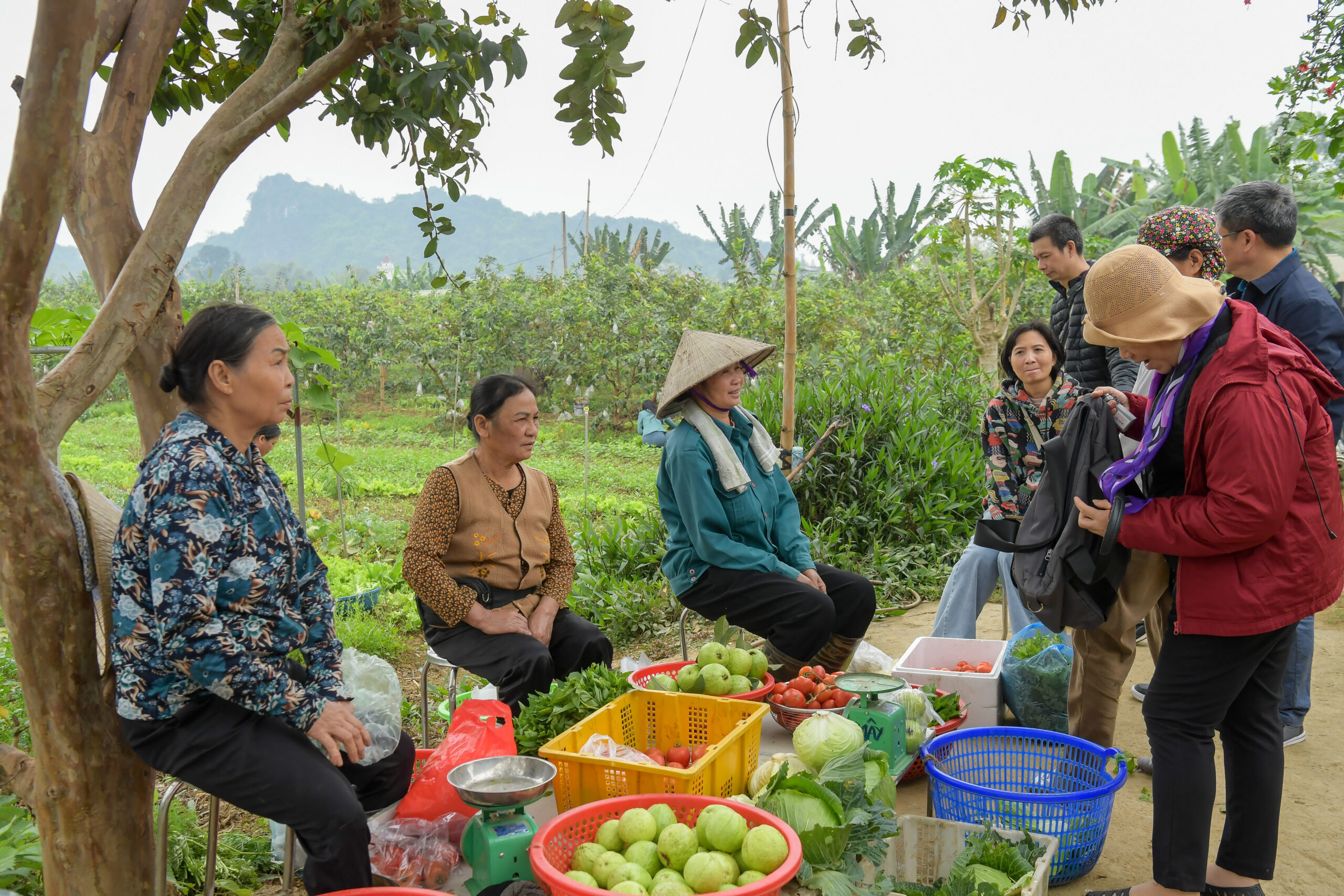“It could be a ‘game-changer’ for our work”
A breakthrough in efficient, accurate, and scalable soil diagnostics is taking root in The Gambia —one thatwill facilitate the scaling of soil health information across the country and may even prove to be a “game-changer”in supporting farm productivity.Â
The recent establishment of a mid-infrared (MIR) spectroscopy laboratory at the National Agricultural Research Institute (NARI) in the capital city of Banjul is set tobring wide-reaching benefits to decision-making by providing inclusive and fast analysis compared to conventional laboratory techniques. MIR offers a faster, more inclusive andcost-effective way to analyse soil health, enabling large-scale projects, including national surveys and supporting sustainable farming and landscape restoration. Â
“This will usher in a new era of data-driven decision-making for agriculture in The Gambia, where agricultural productivity is closely linked to soil health,” said Leigh Ann Winowiecki,  Soil and Land Health, theme leader at the Center for International Forestry Research and World Agroforestry (CIFOR-ICRAF).Â
At the core of the MIR laboratory is a small benchtop spectrometer, portable enough to run onbatteries. Soil samples are air dried, finelyground and exposed to mid-infrared light for just 30 seconds. Their unique spectral signatures are then interpreted through CIFOR-ICRAF’s spectral library —one of the world’s largest, with more than 200,000 spectra—translating these new spectra into detailed and meaningful soil properties, such as soil texture, soil organic carbon, total nitrogen, soil pH, among others. Â

The MIR laboratory has sparked hope among researchers and technicians trained in its use. “It could be a ‘game-changer’ for our work,” said researchers who participated in training courses held at the new laboratory in September 2024 and from 21 to 25 April 2025 through the Regional Soil Fertility Mapping Project (RSFMP). Â
“Spectroscopy is new to us, this is the first time The Gambia is going to have a soil spectroscopy lab, and we are very excited and hopeful that this is going to be a game changer,” said Abdoulie Nyabou, a principal officer at the Ministry of Agriculture’s Soils and Water Management Services.
Drawing on decades of expertise from its Soil and Land Health theme and extended knowledge on soil spectroscopy, technological innovation and capacity building, CIFOR-ICRAF has supported the scaling and use of soil spectroscopy in the Gambia through a mix of technical innovation and hands-on training.Â
At the heart of this digital shift is the Laboratory Information Management System (LIMS), developed by CIFOR-ICRAF. The system supports all aspects of laboratory operations—from logging incoming samples and test scheduling to data processing and generating reports. It also serves as a centralized data repository, securely storing all spectral, analytical and logistical information for easy access, in-depth analysis, and long-term reference. By streamlining daily operations and enhancing the management of information, LIMS ensures that soil data is not only collected efficiently but also managed effectively. Â
“Through LIMS, we’re able to streamline lab operations, ensuring soil data from the field is managed intelligently while automating lab processes and storing spectral data safely, which can be used to generate actionable insights,” explained Salma Nyagaka, an information systems developer at CIFOR-ICRAF.
The initial phase of training, held from 30 September to 4 October 2024, welcomed 21 participants (17 men and four women) from NARI and various government agricultural institutions. The sessions included both theoretical instruction and practical, hands-on training in soil sample processing, logging and archiving. A follow-up training in April 2025 offered a refresher to 13 participants (10 men and three women), with sessions focused on spectrometer maintenance, LIMS integration and quality control.Â
“The training on the spectrometer was highly informative and practical,” said Basiru Bojang, a research officer at NARI, who participated in the April 2025 training. “It enhanced my understanding of the equipment and its integration with the LIMS system, which I believe will improve our lab’s efficiency and data accuracy.” Â
The goal of the new MIR laboratory is not simply to install equipment, but to cultivate self-sustaining, technically proficient local laboratories that can support national soil health initiatives well into the future.

Building agricultural research capacity through specialized training
The training offered so far will help the Gambian NARI team develop robust soil analytics, databases and maps that will be available in near-real time in an economical and environmentally friendly manner, said Elvis Weullow, one of the lead training facilitators and a senior Laboratory Enterprise Manager at CIFOR-ICRAF.Â
“This will greatly impact small-scale farming by evaluating their soil health status for best-bet decisions to improve on productivity and ensure food and nutrition security,” said Weullow.Â
At the end of the training, participants said they were equipped to begin analysing the soil samples to produce much-needed data.Â
“The training was practical and thorough,” said Kaddijatou Jawaneh, a principal research officer at the Ministry of Agriculture. “We are now prepared to run the lab daily, ensuring that every soil sample is processed efficiently and accurately while building the capacity of women in soil diagnostics.”Â
Soil spectroscopy without borders: A new agricultural era for The Gambia and beyondÂ
The MIR lab in The Gambia is part of a growing network led by CIFOR-ICRAF’s Soil-Plant Spectral Diagnostics Laboratory in Nairobi, which has pioneered dry spectral soil analysis across Africa since 2009. With over 30 MIR labs now operating continent-wide, the initiative supports a global spectral library and cloud-based calibration services, allowing countries to leapfrog traditional limitations in soil testing.Â
Central to this capacity-building effort is the application of the Land Degradation Surveillance Framework (LDSF), a systematic soil sampling protocol that enables spatially representative and statistically robust soil data collection across heterogeneous agroecological zones. The LDSF methodology standardizes sample site selection, soil profile characterization, and sample collection depth intervals, ensuring high data quality and comparability.Â
Soil spectroscopy marks a shift from traditional approaches to science-led, data-driven agricultural decision-making. This integrated approach enhances the accuracy and reproducibility of soil property predictions derived from MIR spectroscopy. With high-quality soil data, Gambian farmers will be better equipped to choose appropriate crops, apply fertilizers more efficiently, and adopt sustainable land management practices, facilitating data-driven decisions for soil fertility management and land restoration efforts in The Gambia. Â

From data to a farming revolutionÂ
“This training has positioned us to be a model for other countries in the region.” Â
By investing in soil spectroscopy and strengthening local capacity, the RSFMP and CIFOR-ICRAF are igniting a data-driven agricultural revolution. This transformation empowers even smallholder farmers to harness the power of soil science, leading to smarter decisions, improved yields and a more sustainable future for agriculture. Â
“We now have the tools and skills to provide accurate, real-time soil data,” said Lamin Sonko, RSFMP national coordinator and Ministry of Agriculture representative. “This training has positioned us to be a model for other countries in the region.” Â
Acknowledgements
This work is part of a broader initiative funded by the Islamic Development Bank (IsDB) in partnership with  Crop Nutrition Laboratory Services Ltd (Cropnuts), the International Fertilizer Development Center (IFDC) and Mohammed VI Polytechnic University (UM6P).

